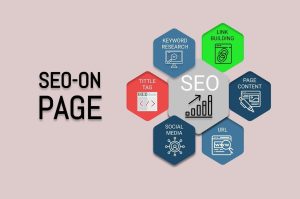Introduction
In the rapidly evolving landscape of artificial intelligence (AI), language bots like OpenAI’s ChatGPT, Meta’s Llama, and Google’s Gemini are gaining prominence. As these AI-powered tools continue to advance, their potential to revolutionize white-collar tasks, including copywriting, legal brief preparation, and drafting letters of recommendation, becomes increasingly apparent. However, a recent study conducted by Harvard Business School sheds light on the mixed impact of ChatGPT on the work of business consultants, raising intriguing questions about its role in the future of office work. In this article, we will explore the findings of this study, delve into the implications for consultants, and examine the broader impact of AI on various professional domains.
The Study: Unveiling the Effects of ChatGPT on Elite Business Consultants
Led by Karim Lakhani, a professor at Harvard Business School, the study aimed to gauge the influence of ChatGPT on the productivity and job satisfaction of elite business consultants. Initial tests with a group of two dozen workers showcased the language bot’s ability to accelerate task completion, enabling consultants to finish two hours’ worth of work in just 20 minutes. However, the researchers were surprised to discover that instead of embracing the tool, the consultants experienced feelings of unease and apprehension.

The Consultants’ Dilemma: Speed vs. Skill
The study revealed that while ChatGPT significantly improved the speed and quality of work on creative tasks, it posed challenges when applied to analytical work. Consultants who used ChatGPT for brainstorming tasks produced work that was rated approximately 40 percent better on average by independent evaluators. Remarkably, even those who solely relied on the output generated by ChatGPT received higher ratings than their colleagues who blended the AI-generated work with their own thoughts. These AI-assisted consultants were also more than 20 percent faster in their work.
The Pitfalls of Over-Reliance: Analytical Tasks and Reasoning
Despite the initial success, the study uncovered potential dangers associated with over-reliance on ChatGPT. When consultants applied the language bot to tasks that required reasoning based on evidence, the AI assistance proved to be counterproductive. In a scenario where volunteers were asked to advise a fictitious corporation based on data interpretation from spreadsheets and mock executive interviews, ChatGPT led employees astray. Unaided humans achieved the correct answer 85 percent of the time, while those who used ChatGPT without training scored just above 70 percent. Even those who received training performed worse, with a success rate of only 60 percent.
Mixed Emotions: Consultants’ Perception of ChatGPT
The study not only examined the impact of ChatGPT on consultants’ productivity but also delved into their emotional response to the AI tool. Many consultants expressed concerns about how ChatGPT would transform their profession and potentially erode their own creative capabilities. Approximately three-quarters of the participants voiced worries that the use of ChatGPT could lead to the atrophy of their creative muscles. These anxieties indicate the profound implications of AI adoption on the professional identities and well-being of workers.
The Future of White-Collar Work: Opportunities and Challenges
As language bots like ChatGPT continue to advance and become more prevalent in white-collar industries, it is crucial to understand their potential benefits and drawbacks. While the study demonstrated significant improvements in productivity for certain tasks, such as brainstorming and creative writing, it also highlighted the risks of over-reliance and the limitations of AI assistance in analytical reasoning. These findings call for further research and exploration of how AI can be effectively integrated into different professional contexts without compromising the expertise and autonomy of workers.

Insights from Industry Experts
Maryam Alavi, a professor at the Scheller College of Business at the Georgia Institute of Technology, commended the study for its design and emphasized the need for deeper understanding in this nascent field. Alavi, who has extensively researched the impact of new digital technologies on workers and organizations, acknowledged that the study highlights the gaps in our knowledge and the necessity for continued exploration.
Real-World Testing: Partnering with Boston Consulting Group
To ensure the study’s validity and relevance, the researchers collaborated with Boston Consulting Group, one of the world’s largest management-consulting firms. By involving real workers in solving authentic management-consulting problems, the study aimed to simulate the challenges and opportunities faced by professionals in the field.
Experimental Design: Training and Usage of ChatGPT
The study divided the participating management consultants into two groups, each assigned a different management-consulting problem to solve. Within each group, consultants were further divided into subgroups: some used ChatGPT after 30 minutes of training, some used it without any instructions, and some did not use it at all. This comprehensive design allowed researchers to analyze the impact of ChatGPT under various conditions and contexts.
Unleashing Creativity: ChatGPT’s Effectiveness in Creative Tasks
One of the tasks assigned to the consultants was to brainstorm and develop a persuasive business plan for a new type of shoe. Many researchers believed that such creative tasks were exclusively within the realm of human capabilities. However, the study shattered this assumption. Consultants who utilized ChatGPT demonstrated a remarkable improvement in their work quality, with independent evaluators rating their output approximately 40 percent higher on average. This finding challenges traditional notions of creativity and highlights the potential of AI to augment and enhance human capabilities rather than replace them.
The Danger of Polished Output: Analytical Tasks and ChatGPT
While ChatGPT proved effective in creative tasks, the study uncovered its limitations in analytical work. Consultants were asked to interpret data from spreadsheets and relate it to mock executive interviews. In this scenario, ChatGPT’s polished output created a false sense of trust among employees, leading to a decline in performance. Unaided humans achieved the correct answer 85 percent of the time, while those who relied on ChatGPT without training scored just above 70 percent. Even those who received training fared worse, with a success rate of only 60 percent.
The Emotional Impact: An Existential Crisis?
The study delved into the emotional response of consultants to ChatGPT, revealing a range of concerns and anxieties. Many consultants expressed worries about the tool’s potential impact on their profession and their own sense of self. The fear of losing their creative abilities and becoming overly reliant on AI-generated solutions was a common sentiment. These emotional responses highlight the need for careful consideration of the psychological and social aspects of AI integration in the workplace.

Conclusion: Balancing AI Assistance and Human Expertise
The study on the impact of ChatGPT on business consultants provides valuable insights into the potential benefits and challenges of AI integration in professional settings. While the tool demonstrated impressive improvements in productivity for creative tasks, it also raised concerns about over-reliance and the erosion of human expertise in analytical work. As AI continues to advance, it is crucial to strike a balance between leveraging AI assistance and preserving the unique skills and capabilities of human professionals. Further research and experimentation are necessary to navigate this evolving landscape effectively.
In the coming years, the widespread adoption of AI-powered language bots is inevitable. However, the path to successful implementation lies in understanding and addressing the concerns and challenges raised by professionals in various industries. By embracing AI as a valuable tool rather than a replacement, businesses can unlock new levels of productivity while empowering their workforce to thrive in the age of AI.




No comments! Be the first commenter?